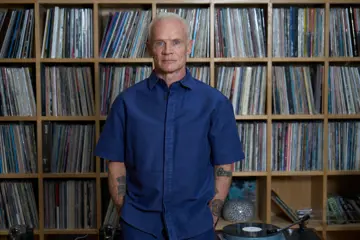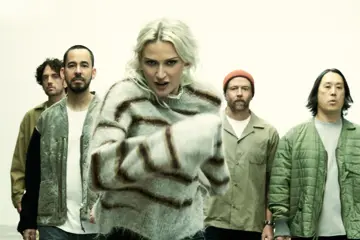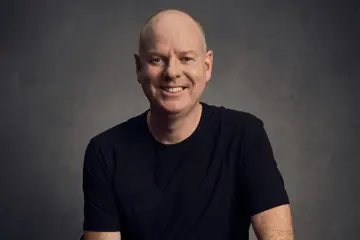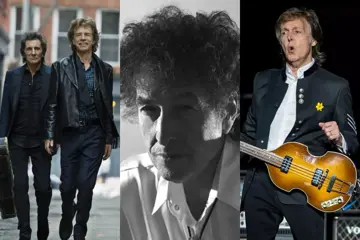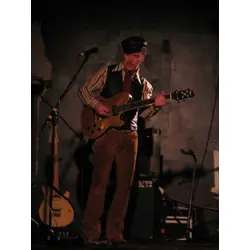 Dave Graney
Dave GraneyIs the album dead?
Well, if you read the daily papers, it appears to be pretty much dead, buried and cremated.
An investigation by The Music has revealed that you’re twice as likely to see a review of a bottle of wine than an album.
The Music monitored the mainstream press over two weeks. The first was the week after the 2022 ARIA Awards – a time that should be a celebration of Australian music in the local media. Yet, you wouldn’t know it if you were reading the daily papers.
The Music examined the print editions of 20 newspapers – Monday to Saturday’s The Herald Sun, The Age and The Australian, as well as the Sunday Herald Sun and Sunday Age.
The nation’s biggest-selling newspaper, The Herald Sun, did not run a single album review. In fact, it appears to have featured just one review since its leading music writer Cameron Adams exited the paper in August 2021 (a 345-word piece on ABBA’s Voyage).
Don't miss a beat with our FREE daily newsletter
A News Corp insider told The Music: “Modern journalism is all about the clicks. And album reviews just don’t get clicks, so journalists have no interest in doing them.”
The Age ran just one album review for the entire week – Adalita’s Inland, in its Saturday Spectrum section.
The Australian ran five album reviews in its Saturday Review. To its credit, three were local releases, by Adalita, Darren Hayes and the Tim Rollinson Trio (the others were albums by the Red Hot Chili Peppers and UK folk band The Trials Of Cato).
The death of album reviews is certainly not down to a lack of material. The Australian Music Prize assessed 490 Australian albums that were released in the past year.
Most of them went unreviewed by the mainstream media.
A leading music publicist lamented the lack of album reviews. “Artists put their blood, sweat and tears into making a record and then … nothing. It’s the sound of silence. And that can be devastating for an artist.”
Do reviews sell albums? “No,” says the publicist, who did not want to be named because she deals with the media every day. “But they’re an important part of an artist’s story. A good review will be quoted in their press releases and bios and help them get more media attention. And artists just want some sort of acknowledgment of their work.”
One of Australia’s finest reviewers, Bernard Zuel – whose feature album review was a must-read in Saturday’s Sydney Morning Herald – has witnessed the decline in music coverage from the inside.
“The lack of serious album reviews – by serious I mean consistent coverage across the genres at more than a token gesture of a few hundred words and for more than a current big name – is neither new nor likely to change any time soon,” Zuel says.
“Except to get worse.”
The problem, Zuel explains, is that the arts don’t generate much advertising income, and when it comes to editorial priorities, music is at the bottom of the barrel, below books, visual arts, film, television and theatre, “and of the music coverage, album reviews were seen as the least valuable asset of the three key areas of features/live reviews/album reviews.
“Reviews were reduced in space, then prominence and then accessibility on websites, on the basis that people weren’t going there/clicking on them, so let’s put more immediately eye-catching material up front, though the fact that they were not easily found – how many click throughs will someone go through before giving up and looking elsewhere for music coverage? – and presented as an afterthought might have an impact on whether people bother to look was never really countenanced as a counter argument. Self-fulfilling or smart?”
Dave Graney and his partner Clare Moore recently released In A Mistly, an album deserving of serious appraisal. But the fact it was ignored by the press didn’t surprise or overly concern Graney. “Critics never bothered with me very much anyway,” he says. “I shit critics.”
Graney is no fan of the mainstream media’s music coverage. “All music writing in mainstream media was written presuming the reader was either not interested or ignorant. Actual music magazines were immersed in a culture, but they all went tits-and-ass tabloid as well.
“Word of mouth is still the best.”
Being shunned by mainstream media forces artists to rely on social media. “It means you have to keep your own engine running the whole time,” says Rebecca Barnard, who recently released her first jazz album, The Night We Called It A Day. “It’s totally up to you to self-promote. And everyone loathes it – I don’t know anyone who likes doing it.”
In the week after the ARIA Awards, the 20 newspapers featured 73 reviews of TV shows, 17 movie reviews, 19 book reviews (plus a five-page Christmas book-buying guide in The Weekend Australian), 16 wine reviews and 10 restaurant reviews.
The Australian ran a book review every day.
The Age/Sunday Age ran six theatre reviews, but just two reviews of live music (both of Nick Cave & Warren Ellis’s show at Hanging Rock).
Was that just an isolated week? Well, no.
The Music also monitored The Australian, The Age and The Herald Sun during the first week of February when several big albums were released, including new records by Robert Forster, Henry Wagons and Rebecca Barnard.
The Australian again led the way with five album reviews: three local – The Smith Street Band, Andy Bull and the Tamara Murphy Trio – and two international artists (Shania Twain, First Aid Kit).
The Age ran six live reviews (Darren Hayes, Red Hot Chili Peppers, Fontaines D.C, Phoebe Bridgers and two classical concerts), but just one album review (English band The Go! Team).
The Herald Sun reviewed five apps, four pairs of sneakers, two podcasts, two cars and one computer, but not a single album.
Overall, the 20 newspapers featured 73 TV reviews, 21 movie reviews, 36 book reviews, 10 restaurant reviews, nine wine reviews, four podcast reviews and six album reviews.
Does it matter? Is anyone reading newspapers to find out what’s happening in the music world? Probably not. But the lack of music coverage is certainly not helping local artists.
AMP judge and critic Mikey Cahill believes “the problem is also a political one – ScoMo’s feeble government undervalued the arts to the point of condescension.
“The new federal government is shifting the spotlight – and some crucial funding – back to the entertainment sector. Prime Minister Albanese clearly wants to rebuild musicians’ livelihoods after years of lockdowns and Covid uncertainty.
“Commissioning album reviews in the mainstream press is a way the national publishers can read the room and lend a hand. It’s up to editors to push journalists for insightful angles and juicy, opinionated reviews that will draw the clicks, engage the zeitgeist and get Australian records back to the top of the charts.”
For the entire month of February, ARIA’s Top 40 featured just one Australian album: Spacey Jane’s Here Comes Everybody – a record that was released in June last year.
“Are you kidding me?” the publicist responded. “I knew things were bad, but you’re telling me that for one whole month just one Aussie album made the Top 40? That’s ridiculous.
“The charts are a whole other story, but I guess there’s a connection. The lack of album reviews is not the reason there are no Aussie acts on the charts, but it’s certainly not helping.
“The mainstream media is failing Australian artists,” the publicist concludes. “And it’s not just newspapers, it’s TV and radio – they pretend to support Australian music but, in reality, they do very little.”
After leaving the Sydney Morning Herald, Bernard Zuel set up his own website. “I can run my reviews and interviews at the length and style I want,” he says. “And while I’m having a great time, I am making precisely zero dollars from it. So what do I know?”
So how would Zuel approach album reviews if he were entertainment editor at a daily paper? “I’d be putting aside a page every week for two or three serious examinations of music that is worth being seen/heard and adding to it with shorter things to say – though by shorter, I’d be talking 200-400 words, not 100-200.”
He smiles. “I would then be replaced pretty quickly.”
When Prince made his final appearance at the Grammy Awards in 2015, he said simply: “Like books and black lives, albums still matter. Tonight, and always.”
But Dave Graney doesn’t believe that music reporting and reviewing will improve. “The clickbait churn has devalued every word printed on every subject in mainstream media,” he says. “Everything is there just to inflame the punter. It’s a death spiral for those portals.”
In his reviewing swansong for the Herald Sun on August 13, 2021 (a four-star review of Polish Club’s Now We’re Cookin’), Cameron Adams wrote:
“We don’t froth enough over our homegrown talent when they hit a purple patch.”
But his bosses clearly didn’t get the message. And things aren’t much better at Melbourne’s other major daily. A little over a decade ago, The Age would run record reviews on Thursday (in the Green Guide), Friday (the EG), Saturday, and in the Sunday Age. Now it’s 160 words on one album on a Saturday.
In 2023, it appears that if you enjoy eating, watching TV and reading books, the daily papers have plenty for you.
If you’re a music fan, not so much.

